Capetonian women shine at national higher education leadership awards
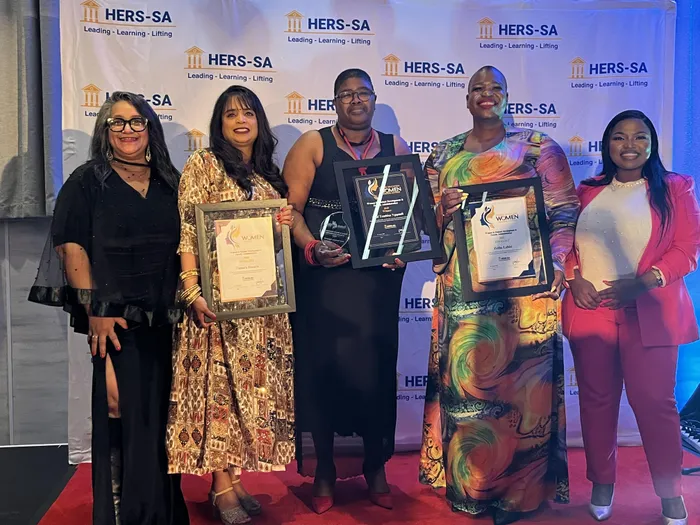
Cape Peninsula University of Technology's Cathy Cloete, Women in student development and faculty administration finalist - University of Johannesburg's Tamara Francis, winner Cape Peninsula University of Technology's Professor Tembisa Ngqondi, from Milnerton, University of Witwatersrand's Zethu Lubisi and sponsor representative Nomava Sipendu-Mvunyiswa.
Image: Fouzia Van Der Fort
Three Capetonian women professors took top honours at the Higher Education Women Leadership Awards 2025.
The awards ceremony was hosted by self-sustaining non-profit organisation Higher Education Resources Services - South Africa (HERS-SA) in Milnerton on Thursday, August 28.
Stellenbosch University's Professor Soraya Bardien, from Tygerberg, won the women in science, technology, engineering and mathematics (STEM) Award.
She heads the parkinson's disease research group, the only one of its kind on the African continent.
Her team explores the genetic causes and underlying mechanisms of the incurable neurological disorder.
The disorder is characterised by the degeneration of brain cells that produce dopamine, a key chemical for smooth, controlled movement.
Via video, Professor Bardien, while acknowledging the legacy of apartheid, dedicated her award to her mother, who was taken out of primary school and not given the opportunity "she deserved".
"She brought up four women, who stand by their convictions and don't take nonsense from anyone
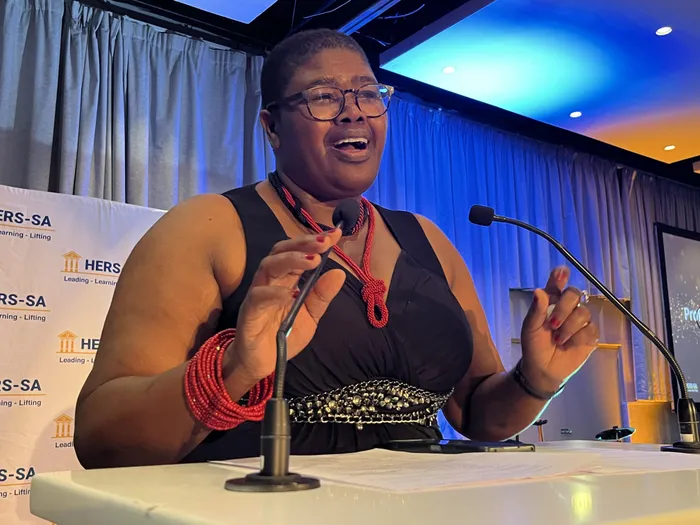
Higher Education Women Leadership Awards 2025 winner in the Women in student development and faculty administration catergory Professor Tembisa Ngqondi, from Milnerton.
Image: Fouzia Van Der Fort
Two Cape Peninsula University of Technology professors won in two different categories.
Professor Tembisa Ngqondi, an associate professor and dean of the faculty of informatics and design, won the women in student development and faculty administration award.
She specialises in information and communication, with a particular focus on ICT for Development (ICT4D). She was also a finalist for the women in academic administration award.
Professor Ngqondi said: "It is up to you to decide whether you want to think about the half-empty cup or you think of the half-full cup."
Professor Bongani Ncube, from Durbanville, won the Trailblazer Award, with her more than 30 years of experience in water, agriculture, and environmental sciences.
She serves as a chairwoman under the South African Research Chairs Initiative (SARChI), established by the department of science and innovation (DSI) and the National Research Foundation (NRF) in 2006.
Professor Ncube said winning the award was a "big thing".
The University of Cape Town's Natascha Hector was a finalist in the women in support services (WISS) category.
HERS-SA is dedicated to women's careers, advancement, and leadership development, employed in the higher education sector, via carefully crafted programmes.
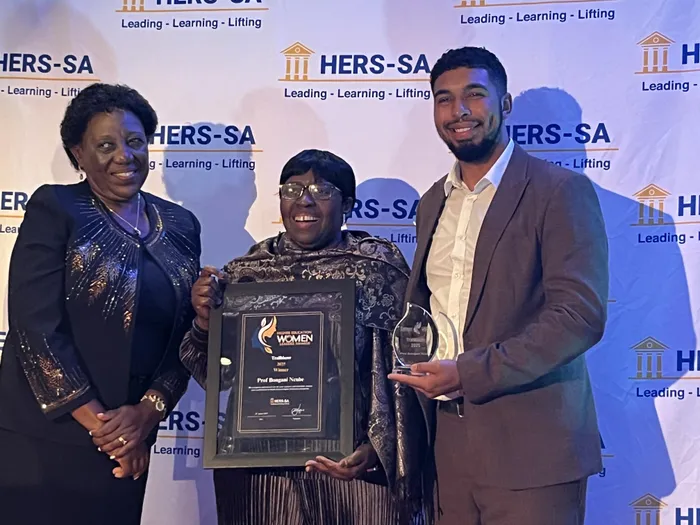
Higher Education Resources Services (HERS) - East Africa's Dr Naomi Lumutenga, winner of the Trailblazer Award Cape Peninsula University of Technology's professor Bongani Ncube, from Durbanville, and sponsor representative George Watson.
Image: Fouzia Van Der Fort
Dr Soraya Beukes, chairwoman of the HERS-SA Board said: "It is with great pleasure that I congratulate this year's winners. I also wish to recognise and celebrate the incredible journey of all our finalists, as we as the continued support of all our sponsorship partners."
She said that without their collaboration, they could not empower and recognise the achievements of South African women in higher education.
"Women who lead, inspire and motivate those inside and outside their institutions to do more and be more," she said.
Dr Beukes also advocated for the collaboration between humans and artificial intelligence (AI).
She called for the embracing of the 5th Industrial Revolution (5IR), a new phase of industrial development focused on the harmonious collaboration between humans and advanced technologies like AI, robotics, and biotechnology.
"We still need the essential human skills. They remain. These abilities are valued by employers. Only humans can think out of the box.
"Human centric skills like EQ, your emotional quotient that is adaptable skills beyond the reach of AI. AI won't have empathy. Resilience is needed for constant evolving around the professional environment. AI is an internal part of the business solutions and operations," said Dr Beukes.
The finalists and winners also completed a week-long academy (conference), where prominent leaders, from South Africa and abroad, shared their knowledge, expertise, and insights with aspiring women in higher education.
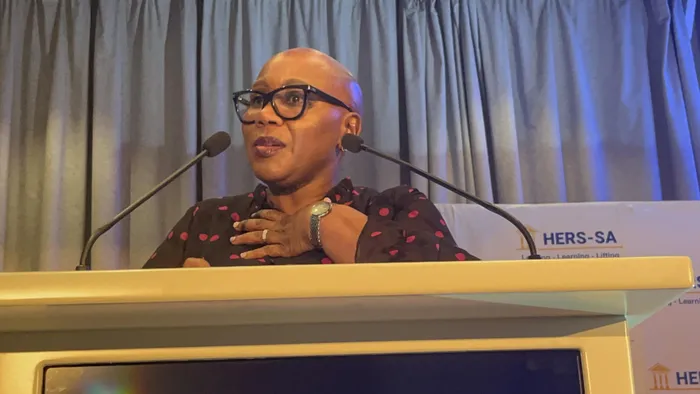
Deputy minister of science, technology and innovation Nomalungelo Gina.
Image: Fouzia Van Der Fort
Deputy minister of science, technology and innovation Nomalungelo Gina encouraged the women to support and empower each other to continue leading in their communities, institutions, and in boardrooms.
"If half of our population is left behind, our country cannot move forward. We must ensure that women have equal access to devices, to data, to training and leadership pathways, and we must design technologies that reflect diversity of our society, not technologies that reinforce the inequalities that are there," she said.
Ms Nomalungelo said there are nine out of 24 higher education institutions in the country that have women vice-chancellors.
She said they were making progress.
"It is not easy. If we are not going to support each other, we are going to fail," she said.
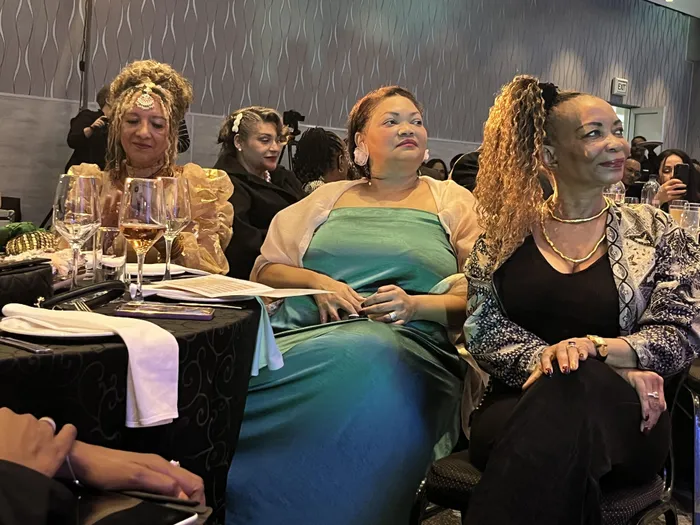
Higher Education Resources Services - SA (HERS-SA) chairwoman Dr Soraya Beukes, board member Ursula Riddles and guest Violet Pansergrau.
Image: Fouzia Van Der Fort